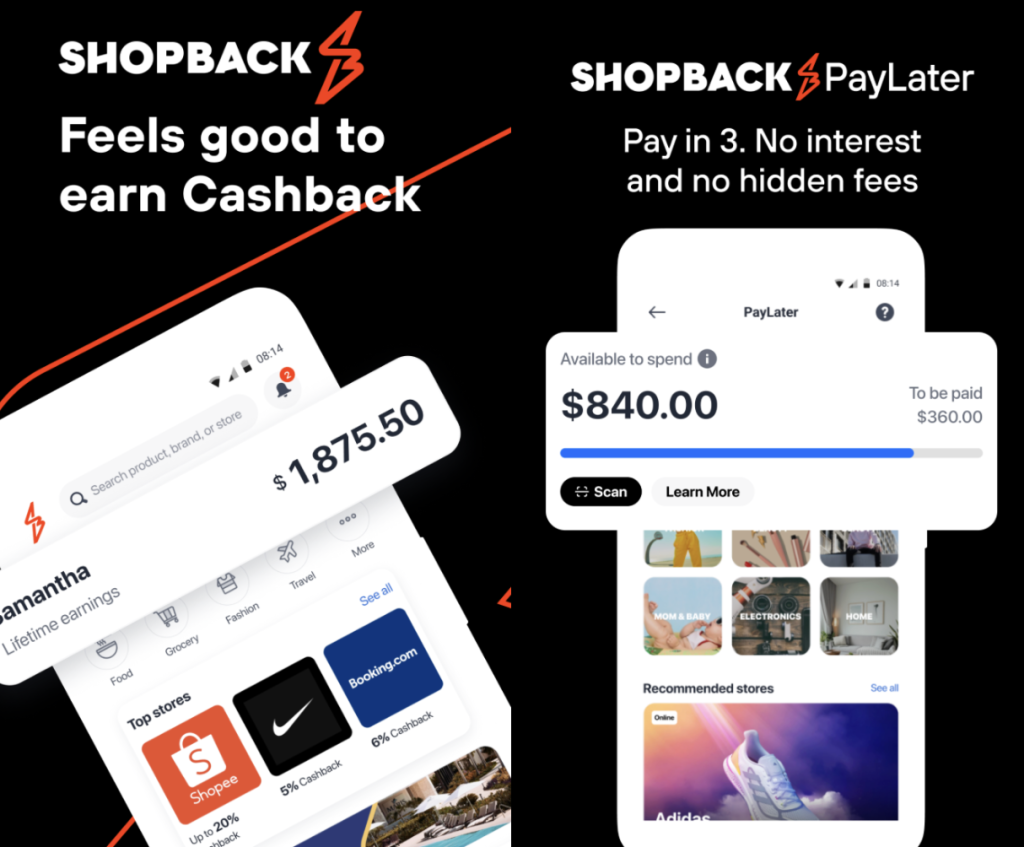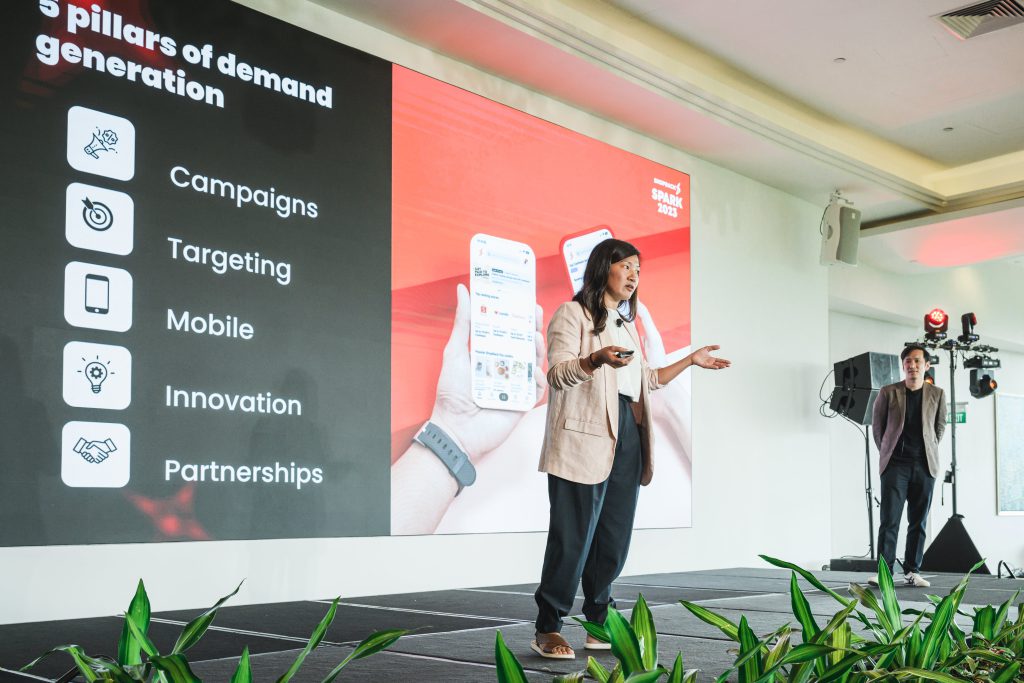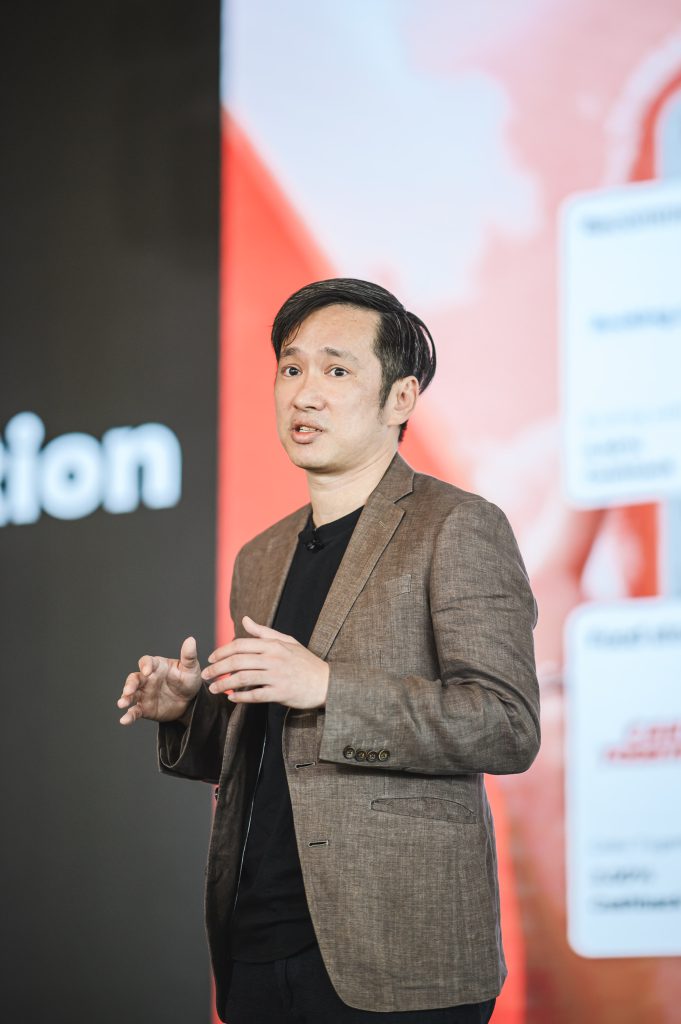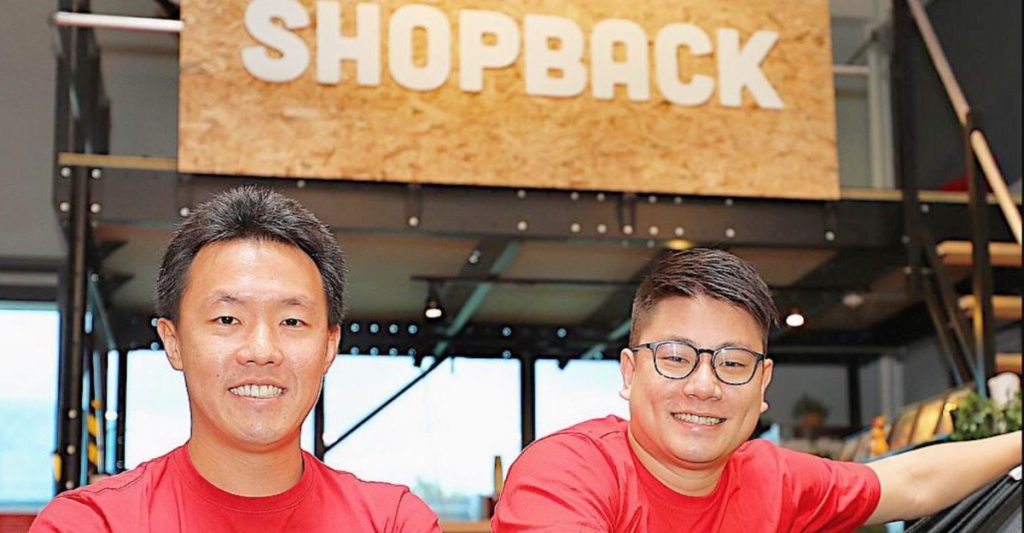ShopBack started out nine years ago in 2014 as the brainchild of former Zalora executives Henry Chan and Joel Leong. The cashback rewards company recorded only three transactions a day when it first started, but it has since grown to become one of Singapore’s rising startups.
Last December, ShopBack raised a total of US$160 million in its Series F funding and to date, it has managed to expand its presence across Asia Pacific, including Australia and most recently, Hong Kong.
But how did the company make it this far? At ShopBack’s flagship merchants summit, SPARK 2023, held last Thursday (July 6), Henry, Joel, and other key ShopBack executives shared the secrets behind the startup’s soaring success.
The potential of affiliate marketing in Southeast Asia

ShopBack is a cashback rewards platform that allows its users to receive a small percentage of their purchases on the platform, which is paid for by merchants.
This is made possible through affiliate marketing arrangements, where the merchants pay a fee to ShopBack to drive sales and traffic to their websites.
The concept of affiliate marketing on the Internet was conceived of, put into practice, and patented by American entrepreneur William Tobin in 1989. William utilised affiliate marketing to sell flowers, and through this marketing strategy, he managed to sell US$8 million dollars worth of flowers.
Following William’s success, the concept of affiliate marketing quickly spread through the United States and was eventually leveraged by e-commerce giants such as Amazon and LinkShare. By 2013, the affiliate industry actually made up about 15 per cent of all e-commerce sales in the United States.

Today, affiliate marketing has grown to a US$20 billion dollar industry, with interest in the sector growing by almost 300 per cent from 2017 to 2021 globally. According to Joel, this growth can be attributed to three main reasons.
Firstly, affiliate marketing increases [a merchant’s] customer base. William initially had a limited customer base, but the affiliate programme allowed him to expand to a bigger pool of customers and thus, he was able to sell more flowers.
Next, affiliate marketing is [solely] focused on sales. It doesn’t drive CPC (cost-per-click), it doesn’t drive CPA (cost-per-action), it doesn’t just drive impressions, but it focuses on what the merchants want, which is sales.
Last but not least, the fees for affiliate marketing are fixed. Unlike most marketing campaigns, you wouldn’t be left wondering about the sales report or the ROI (returns on investment) at the end of a campaign.
– Joel Leong, co-founder, ShopBack
That said, the industry is still very much focused on the United States, with the country driving almost 60 per cent of this growth. Seeing how the concept was still nascent in Southeast Asia, both Henry and Joel, along with their other co-founders, decided to launch ShopBack in the region.
What is driving ShopBack’s success?
But why exactly is ShopBack’s affiliate marketing business model working today? The reason behind this is simple — ShopBack brings a win-win perspective for both its two key stakeholders: its customers, and its merchants.
From a customer’s perspective, there are a plethora of options available — in fact, there are close to 10,000 merchants for them to shop from, from groceries to travel and fashion, all within a single app. This breadth of options, coupled with the ease of use and the rewards granted by the e-commerce platform elevates its users’ shopping experience.
After all, shopping, for many, is a deeply personal and emotional activity.

When you shop, I’m pretty certain that you will go through a range of emotions. Sometimes you shop when you’re bored, or at other times, you could also be frustrated at your shopping experiences.
But one thing I’m certain ShopBack has done consistently well over the years is to bring about this notion — over the past nine years, we’ve been in the business of making shopping rewarding. We’ve made millions and millions of our shoppers feel great about their purchases by constantly bringing new value to them.
– Justin Lee, Chief Product Officer, ShopBack
As a result, ShopBack is able to attract a wide variety of customers for its merchant-partners by offering a wide range of options. Notably, merchants are only billed for sales that are successfully generated through ShopBack’s platform.
Extending beyond online to offline
Beyond just driving online traffic and sales, ShopBack has been making consistent efforts to expand its offerings into the offline space since 2020 to stay more competitive in the e-commerce space.
The integration of ShopBack’s online and offline offerings, especially since its entry into the payments space with ShopBack Pay and ShopBack PayLater last year, has brought in more value for merchants onboard the e-commerce platform by attracting an even wider pool of customers.

[By bringing ShopBack’s offerings from online to the offline world], we have helped users to save across a larger watershed. As for merchants, we allow them to engage with shoppers in new ways, in the real physical world.
– Henry Chan, CEO and co-founder, ShopBack
One way the company does this is by running interesting offline activations in collaboration with its merchants partners.
“We partnered Booking.com to run an offline activation. It was pretty cool to see queues still forming at our booth despite the event closing at 10pm. Beyond audience engagement, we turned offline shoppers into online customers, driving three times more sales for Booking.com,” he added.
The startup has also worked with homegrown brands such as Love, Bonito, to run omnichannel campaigns. For its latest omnichannel campaign, ShopBack managed to drive S$3 million in sales for the clothing brand over a period of just three months.
Aside from running campaigns, it has also introduced features that integrate its online offerings into the offline space. For instance, the platform’s card-link feature lets shoppers earn cashback offline by using the card linked to their ShopBack app to pay for their purchases at ShopBack’s partner merchants’ physical stores.
How ShopBack drives sales its despite inflation
Beyond this, the homegrown startup also acknowledges and addresses the challenges that shoppers currently encounter, such as inflation.
“We know that shoppers today face rising costs due to inflation, tightening [their] budgets due to recession,” noted Henry.
This is why ShopBack runs campaigns that are “right for the time”, such as its campaign in Australia, “Fight Back with ShopBack, Get Better Bang for your Buck”, which aims to address these challenges.
Aside from this, it also takes a unique approach towards assisting its shoppers. Rather than emphasising on spending money, it prioritises showcasing the amount customers can save by utilising ShopBack, which helps drives sales.
According to Joel, an average user would have saved about S$139 as of today, if they had joined and utilised ShopBack since January 2022. In total, the startup has given out S$460 million in cashback to its shoppers since 2014.

Nevertheless, ShopBack’s core essence remains that of a technology company. Therefore, constant innovation aimed at providing increasingly rewarding experiences for both merchants and shoppers lies at the heart of their operations.
Currently, a significant emphasis is placed on personalisation and the implementation of features that effectively captivate their audience, leveraging the power of data.
Over the past nine years, ShopBack has accumulated a vast amount of consumer data, namely from about 40 million of its shoppers across multiple continents and different transaction categories. Through this data, the company creates hyper-personalised content for consumers, ensuring that the “right content is showed to the right shopper at the right time”.
We build these [hyperpersonalised] campaigns to find insight and connect with our brands. And in return, we acquire new customers that are high value and quality, maximising our return on investment (ROI).
– Jodie Lam, Regional Head of CRM and Product Marketing, ShopBack
Jumping onto the AI bandwagon
In order to leverage this data, ShopBack utilises a variety of machine learning models and artificial intelligence (AI) to analyse details such as the categories users are interested in, regions that users are transacting from, as well as user affinity.
Since ShopBack brought about these personalisation changes, the startup has seen an increased amount of shopping trips per merchant and an expanded user base.

Our users are also a lot more engaged. The metrics are tracking well, the number of shopping trips per user is increasing, and the conversion rate on these users are so increasing.
But very importantly, our users are enjoying this new experience. Our merchants are also seeing a lot more demand for now, as users are now seeing offers that are relevant to them based on their past interactions.
– Isaac Timothy Tay, VP of Product, ShopBack
Aside from utilising machine learning, the startup is also experimenting AI tools such as ChatGPT in its creative processes. With its user base steadily expanding, these tools help the company speed up its processes and content creation, among other use cases.
Nonetheless, Jodie Lam, the regional head of CRM and content marketing at ShopBack, reassures that all the content put out by the startup are thoroughly vetted and undergoes quality control.
“I promise you what you see and read that comes from us, and has not come directly from an AI model,” she asserted.
Becoming the “world’s most rewarding way to shop”

Despite losing about half of its revenue overnight because of COVID-19, ShopBack has come out stronger.
We had to tide through COVID-19, uncertain of how long it would last. But now that COVID-19 is behind us, a new challenge that exists — which is a recession — and it’s likely to last for years to come.
Yet, amidst all these ups and downs, I’m very proud to share that we continue to grow year after year. Last year, we drove S$5 billion in sales.
– Henry Chan, CEO and co-founder, ShopBack
Over the last 12 months, ShopBack has successfully onboarded an impressive 5,455 new merchants onto its e-commerce platform, accounting for more than half of its current merchant base.
In addition to this expansion, ShopBack has ambitious plans to extend its presence beyond the Asia Pacific region in the coming months. According to Alessio Romeni, the managing director of ShopBack, the company has made a commitment to venture into a new market every year.
This year, they have set its sights on Germany, marking an exciting step forward for ShopBack as it expands its global footprint.
While the ultimate vision for the startup is to become the world’s most rewarding way to shop, Henry acknowledges that there is “still much work to be done” before this goal can be fully realised. Despite the challenges ahead, ShopBack remains undeterred in pursuing its bold vision.
Featured Image Credit: East Ventures










